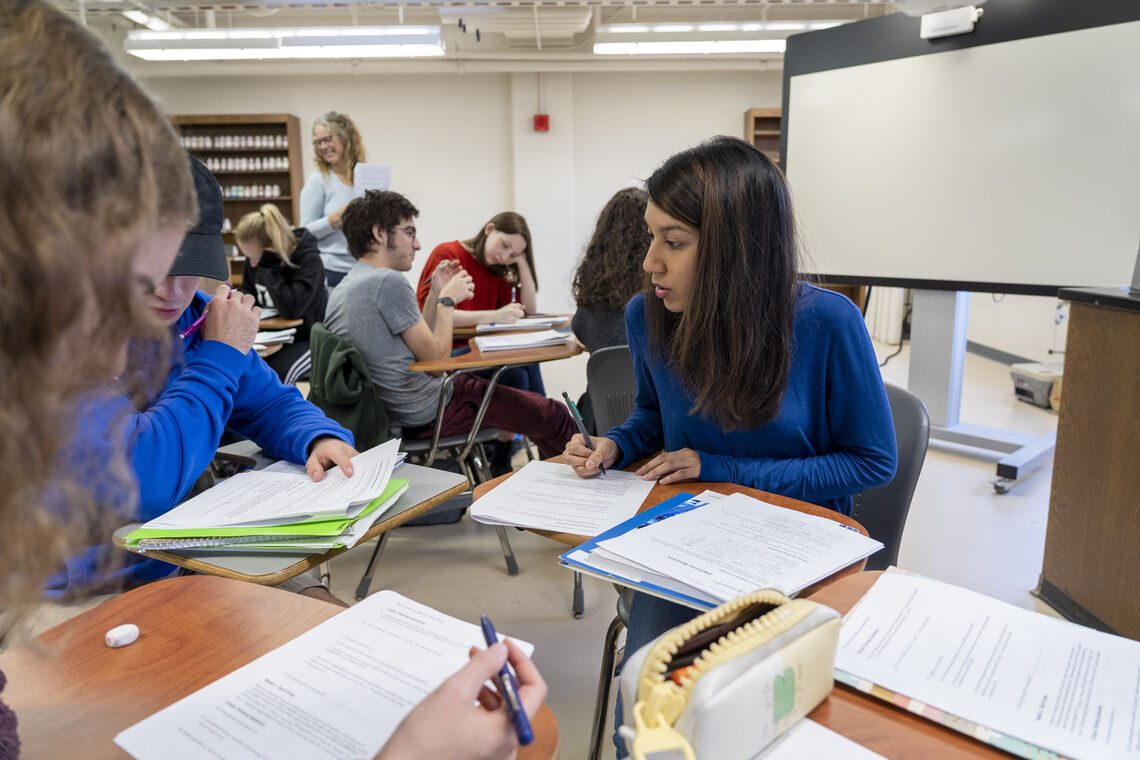I was recently asked to participate in a panel discussion for new faculty; this could have happened anywhere – not necessarily at my institution. The topic of discussion was “what do you know now that you wish you had known when you started your career.” We had some fairly typical discussion about making time for writing, building your network, and talking to colleagues in your department about promotion and tenure.
Then there was this statement by one of the faculty – I will call this person Professor X – on the panel (I am paraphrasing): Limit the time you spend on teaching or preparing to teach… Also: I hate teaching. And this gem: Don’t spend time teaching because it doesn’t matter what you do or how you prepare – the outcome is the same. This person did allow that teaching graduate students in the lab is fun and rewarding.
After peeling myself off of the ceiling, I spent the rest of the week thinking about these words. Is it really true that nothing teachers do matters? How can it be that someone has a faculty position at a university yet hates teaching?
Professor X, I decided, had mistaken “lecturing” for “teaching”. X did say “I like teaching my graduate students – I like seeing them learn.” Yep, definitely teaching going on there, and learning too. Maybe Professor X had prepared a fantastic lecture that had actually bored students or that students had not shown up for. Maybe after a series of lectures, the students had done poorly on an exam. If so, then I would have to agree with X! Don’t spend time on preparing a great lecture. Find another way to teach – teach your classes the way you teach your graduate students. For me that means use POGIL to teach.
I’ll close with some evidence that my students are learning – learning physical chemistry: So I want to start off by saying these group activities have more merit than I previously thought… [E]quating [multiplicity] to entropy makes a lot of sense when I revisit things I have learned in organic chemistry. In that class we said that the more resonance structures a compound had the more stable it was as there were more delocalization. What I didn’t understand is this delocalization was really talking about how entropic the electrons were. Instead of understanding that topic I just drilled in my head that resonance equals stable. Now I can finally get a better idea of how entropy relates to the stability of a system and its constituents…
And learning how to learn: While attempting to assist a teammate with a problem that I thought I understood adequately, I discovered that I had trouble relaying the information to him, which suggested to me that I didn’t understand the material as well as I thought I had. I have read and been told on many occasions that teaching is an excellent way to fortify our own knowledge, but it is also a method of determining where our weaknesses lie.
So my best advice: Attend a POGIL workshop – make your classroom more active and engaging. It will definitely be a great way to spend your valuable, limited time wisely.
